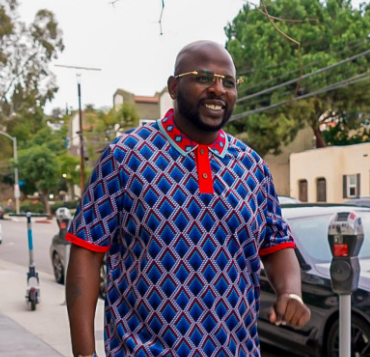-
play_arrow
On The Street On The Air | Kaya 959
69% of South Africans bordering on obesity
By: Lifestyle Reporter
While the intention of lockdown regulations and physical distancing was to contain the spread of COVID-19, the unintended consequences have been an economic crisis, record-high unemployment and a “plumper” population.
A national survey conducted in the last two months among almost 2 000 South African adults paints a dire picture:
– 45% of respondents said lockdown regulations impacted their eating and exercise habits for the worse.
– 44% picked up between 2-5 kg; 15% are 6-10 kg heavier and 4% gained an extra 10 kgs or more.
– 58% of family members (spouse/children) also packed on a few pounds.
– Increased weight gain in 15% of pets were also reported, which has equally real health consequences.
– 34% said their diet consists mainly of takeout and ready-made meals, while a further 30% said they eat what they can afford since their income has been impacted.
– 42% are exercising less than before the pandemic.
– 59% are currently on medication for a comorbidity such as heart disease, diabetes or hypertension.
The survey was commissioned by Pharma Dynamics, the largest provider of cardiovascular medicine in the country, to assess the effect of the pandemic and the subsequent lockdown on the nation’s eating and exercise patterns.
Nicole Jennings, spokesperson for Pharma Dynamics, says they are concerned about the long-term, negative effects that lockdown regulations have on SA’s obesity epidemic.
READ: Why you should be wary of drinking slimming tea
“Treats and calories are up, while exercise is down, which is never a healthy combination. Limited access to daily grocery shopping may have led to reduced consumption of fresh fruit and vegetables in favour of highly processed food. In times of stress and uncertainty, people also find solace in comfort food, which tends to be low in nutritional value and high in carbohydrates, fats, salt and sugar.”
Forty-three percent of respondents who participated in the survey attributed their change in eating habits to stress and anxiety over what the future holds, while 42% said being confined to their homes also led to more snacking and impulsive eating, and 28% simply ate out of boredom.
Jennings says the constant bombardment of COVID-19-related news is stressful, and stress leads to overeating. “Comfort foods can reduce stress as they encourage dopamine production, which has a positive effect on mood, although, they’re not good for your health.”
The nation’s jump in weight the last 12 months significantly increases the population’s risk of hypertension, which already stood at 35% before the pandemic.
READ: Diabetes in teenagers: What you must know
Jennings notes that participants were asked to calculate their body mass index (BMI) – a measure of your weight compared to your height. The findings indicated that 69% (almost seven in ten) respondents polled, ranged between overweight and obese.
“Female obesity rates align with previous data collected in 2019 by another health provider, but men seem to have really struggled with their weight during the pandemic. Based on our survey, obesity rates among men climbed by 40%.”
The lockdown has also expanded children’s waistlines. Interrupted schooling and extra-curricular activities have led to 43% more screen time as many parents had to attend to work responsibilities leaving children to their own devices. Children have also become more sedentary, and many adopted unhealthy eating habits in the process.
The SA National Health and Nutrition Examination Survey (NHANES) currently reports a combined overweight and obesity prevalence of 13.5% in children between 6-14 years of age – about 10% higher than the global prevalence.
“The likelihood of hypertension developing in those who are obese is almost certain and it can result in serious health problems that are even more life-threatening than COVID-19,” says Jennings. “To put it into context, every year, 10 million people die due to hypertension complications alone – almost four times more than those who have died from COVID-19. While COVID-19 remains a public health threat, concurrent epidemics, should not be neglected. The same attention, vigour and resources should be applied at tackling obesity.
“While a sugar tax has been introduced, there is a need for additional legislative changes that focus on societal factors and the food industry. Health policymakers need to take bolder and more definitive steps to curb obesity. Without decisive leadership, it won’t be reversed. Solely relying on public health messages about calorie intake, diet and exercise isn’t enough. A disconnect remains between policymakers and communities that struggle with obesity, especially among those living in low-socioeconomic areas, where unemployment and poverty levels are rife. Political advocacy and action to disrupt entrenched cycles that maintain poverty and prevent access to healthy choices is what is needed.
“SA’s obesity-associated costs already stack up to an estimated R53.9-bn per annum, which puts a tremendous strain on our already fragile healthcare system.”
While the vast majority (88%) are aware that obesity heightens a person’s risk for severe COVID-19 complications, 19% of those polled said they won’t be making any attempt to address their weight issues.
Jennings says it’s clear that the lockdown promoted dysfunctional eating and sedentary behaviours, which need to be overturned.
“Yes, it’s going to be tough to change habits after a year of comfort-eating, but unhealthy lifestyle habits threaten our health. With many still working from home, confined to small spaces, and the rapid increase in door-to-door delivery services, physical activity, such as going out for a walk during lunchtime or popping out to do some grocery shopping may be even more constrained. Similarly, consumers’ reliance on fast-food delivery services like Uber-Eats and Mr Delivery have increased substantially since the pandemic with many a diet solely consisting of junk food. Should the pandemic trend prevail, obesity may get much worse.
“Moving towards a healthier lifestyle is crucial, especially while we are still battling COVID-19. We need to give our immune systems everything it needs to fight back. When obese, your body is in a constant state of inflammation. Just a modest amount of weight gain in people who are hypertensive can increase their blood pressure to dangerous levels, which puts strain on their hearts and overall health.
“As with most habits, it takes time to establish. Now that everyone is accustomed to the new normal, let’s be proactive about establishing new, healthier habits to see us through the pandemic,” urges Jennings.
The results from Pharma Dynamics’ poll were released in early May to coincide with “Measurement Month” – an initiative led by the International Society of Hypertension (ISH) to raise worldwide awareness around the dangers associated with high blood pressure.
The public is being encouraged to measure their blood pressure regularly as hypertension typically has no symptoms and often goes undetected.
“The key to preventing heart disease or a stroke is to manage risk factors, such as high blood pressure, cholesterol and blood glucose levels. Regular blood pressure screening could mean the difference between life and death. In SA, ten people suffer a stroke every hour, while five succumb to a heart attack. Don’t become a statistic, get yourself screened,” she encourages.
The public can visit either their GP or a pharmacy to have their blood pressure, cholesterol and glucose levels taken and is advised to do so at least annually.
Image courtesy of Pexels/ @Anna
Written by: Poelano
obesity obesity in south africa south african obesity statistics
Similar posts
-
MORE ARTICLES

Solly Msimanga on Democratic Alliance’s readiness to govern the Gauteng province

Happy wife, happy life!

“A spinal nerve in my vertebra had broken halfway” – Leon Schuster gives a health update

WATCH: Money coats and 15 cows, King Misuzulu takes 3rd wife

Mpho Sebeng’s memorial service details announced
-
QUICK LINKS
UpComing Shows

Feel Good
With Andy Maqondwana
Feel good about feeling good! That's exactly what The Feel-Good show is about. An escape from the negativity that surrounds us, indulging you in good feels. Pass it on to one and all. Spread the good feeling around Gauteng with Andy Maqondwana.
close
Kaya Biz
With Gugulethu Mfuphi
The world of business is simplified for you by Kaya Biz with Gugulethu Mfuphi. This fast-paced award-winning business show talks to the corporate giants as well as up and coming entrepreneurs about their wins and challenges. Gugulethu invites guests to offer their analyses of markets and economies, and also delves into issues of personal financial wellness. Kaya Biz airs Mondays to Thursdays 18h00 to 19h00.
close
Point of View
With Phemelo Motene
Point of View with Phemelo Motene delves into the day’s current affairs, touches on real issues that affect people’s daily lives and shares expert advice on questions posed by the audience. Mondays to Thursdays 20:00 to 22:00.
close
959 Music Weekdays
Kaya 959 Hits
Real. Familiar. Memorable. Kaya 959 brings you the music you know and love from our playlist. Uninterrupted. Thursdays 20h00 to 21h00
close
The Best T in the City
With T Bose
He has held it down in the world of mid-morning radio with the best music, riveting topics, brilliant mixes and interesting guests. Every weekday, The Best T proves why he is the BEST by connecting to you like only your bro or favourite uncle could. He lets his listeners dictate the songs they want to hear in the ever-popular Top 10 at 10, and his Three Teaspoons never run out. Catch The Best T in the City Mondays to Fridays from 09h00 to 12h00.
closeConnect with Kaya 959
DownLoad Our Mobile App
© 2024 Kaya 959 | On The Street On The Air











